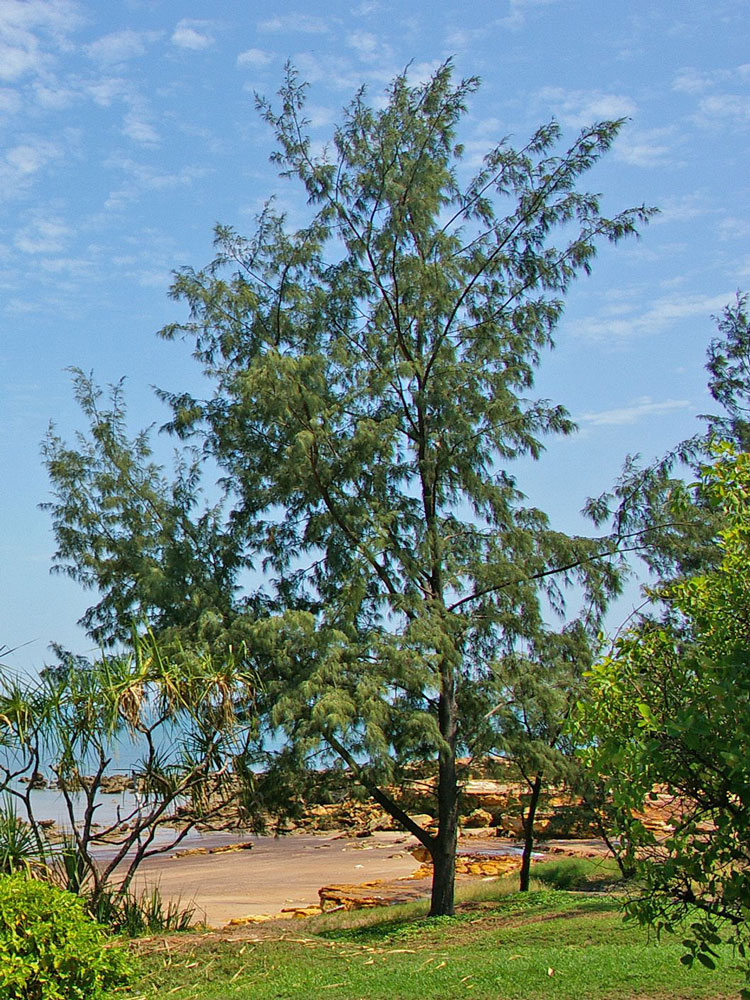Janglisaru - Suru

Casuarina equisetifolia
Summary
Scientific Classification
Kingdom: Plantae
Division: Magnoliophyta
Class: Magnoliopsida
Order: Casuarinales
Family: Casuarinaceae
Genus: Casuarina
Species: C.equisetifolia
Scientific Name: Casuarina equisetifolia L.
Common Names:
English: Sharu, Beef Wood Tree, Sea Oak, Whistling Pine, Bull-Oak.
Hindi: Junglisaru.
Marathi: Suru.
Description:
- Habit and Habitat: A large and handsome tree with brown, rough, fibrous bark pealing in vertical stripes, wood yellowish pink to reddish brown, very hard evergreen tree.
- Distribution: Found from Burma and Veitnam, throughout Malaysia east to French Polynesia, New Caledonia and Vanuatu and South into Australia.
- Morphology:
Leaf: In whorls of 6 to 8, scales like.
Inflorescence: Flowers monoecious; male flowers in terminal spikes usually numerous at the ends of the same branches on which the females are borne lower down.
Flower: flowers are in whorls. Each male flower in the axil of a bract which with other bracts at the node form a sheath protecting the young flowers. There are two bracteoles and two small median hood shaped perianth leaves of which rarely only the posterior is present. Female flowers are crowed at the ends of short lateral branches. Each stands singly in the axil of the bract with the pair of bracteoles, perianth 0.
Androceium: Stamen 1, anther 2 celled, large.
Gynoceium: Ovary 1 celled composed of two carpels, ovules 2, parietal, ascending, style with 2 filiform stigmas.
Fruit: Winged nut, the whole riped female, catkin resembles a small cone which is formed by the bracteoles becoming woody and form 5valves enclosing the compressed nut like winged fruits.
Seeds: Winged seeds.
Flowering and fruiting time: August - November. - Propagation: Direct sowing of seeds.
- Importance:
Wood is used for house pots, rafters, electric poles, mine props and masts of country craft. The bark is astringent and is useful in diarrhoea and dysentery. A lotion of it reported to the efficacious in beriberi. A decoction of the leaves is used in colic and powdered seeds are applied as plaster in headache. - Location:
 Trees of Empress Botanical Garden - Project supported by
Trees of Empress Botanical Garden - Project supported by